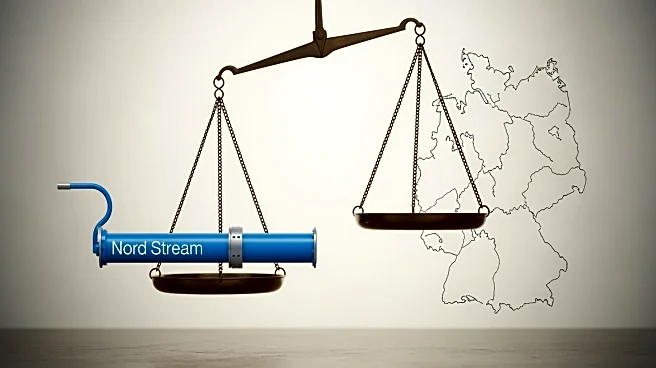What's Happening?
A Polish court is deliberating on the extradition of a Ukrainian man, identified as Volodymyr Z., to Germany. He is suspected by German prosecutors of being involved in the 2022 attack on the Nord Stream
gas pipelines. Arrested near Warsaw on September 30, Volodymyr Z. is alleged to have been part of a group that placed explosives on the pipelines near the Danish island of Bornholm. The court's decision remains pending, and any ruling could be appealed. The suspect's lawyer argues that his client is innocent and questions the charges brought by Germany. The case has the potential to strain diplomatic relations between Poland and Germany, especially given Poland's historical opposition to the Nord Stream projects.
Why It's Important?
The extradition case is significant as it touches on broader geopolitical tensions in Europe, particularly concerning energy security and Russian influence. The Nord Stream pipelines have been contentious, with critics arguing they increase Europe's dependency on Russian gas. The attack on the pipelines exacerbated tensions following Russia's invasion of Ukraine, as European countries sought to reduce reliance on Russian energy. Poland's decision on extradition could impact its diplomatic relations with Germany and influence broader EU policies on energy security and Russian relations. The case also highlights the complexities of international law and extradition processes in politically sensitive cases.
What's Next?
If the Polish court decides to extradite Volodymyr Z., it could lead to further legal proceedings in Germany. The decision may also prompt reactions from other EU countries, particularly those with vested interests in the Nord Stream projects. Poland's stance on the extradition could influence its diplomatic relations with Germany and other EU member states. Additionally, the case may affect ongoing discussions within the EU about energy security and the bloc's approach to Russian aggression.











